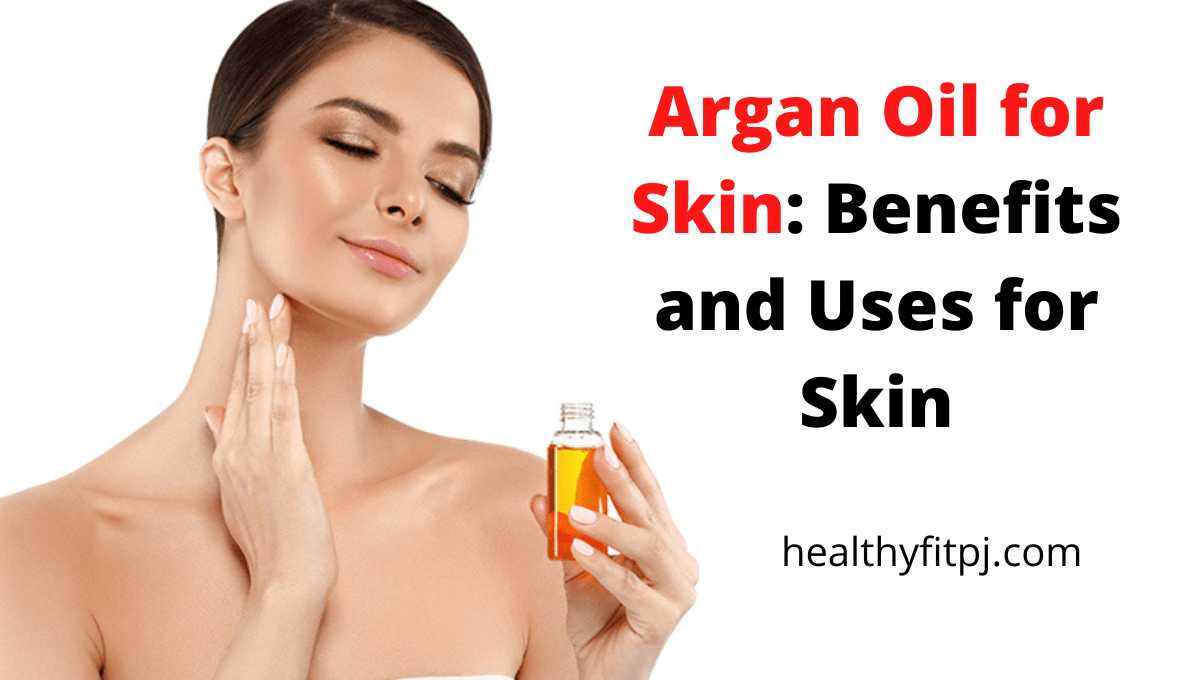The kernels that grow on the argan trees, which are indigenous to Morocco, are used to make argan oil.
It is most usually offered for sale as pure oil, which has various health advantages and can be consumed or applied topically (straight to the skin).
It is available in supplement capsule form for oral consumption. Additionally, it’s frequently incorporated into a variety of cosmetic goods, including shampoos, soaps, and conditioners.
For centuries, people have used argan oil topically and internally to enhance the health of their skin, hair, and nails.
It has a variety of advantageous qualities and vitamins that work in harmony to improve skin health.
Table of Contents
What is Argan Oil?
Argan oil is a naturally occurring oil created by pressing the kernels of a Moroccan-native argan tree under cold pressure. It has historically been used to treat a number of skin issues, such as dry skin, sunburn, and atopic dermatitis, the most prevalent form of eczema.
In pharmacies and drugstores, argan oil is easily accessible as an over-the-counter (OTC) product. It can be purchased as a pure oil or as a component of creams, lotions, shampoos, and conditioners.
Benefits Argan Oil for Skin
Argan oil may have several advantages, many of which are related to how it affects skin. These consist of:
1. Can Moisturizes Skin

The most typical application of argan oil is probably as a moisturiser. Because of this, it can frequently be found in hair conditioners, lotions, and soaps.
It has a moisturising effect when applied physically or taken orally with daily doses.
This is partly because it contains a lot of vitamin E, a fat-soluble antioxidant that can help reduce skin water retention.
2. Protects from Sun Damage
According to a 2013 study, Moroccan women have long used argan oil to shield their skin from sun damage.
According to this study, argan oil’s antioxidant properties helped shield the skin from sun-induced free radical damage.
As a result, this avoided burns and hyperpigmentation. Long-term, this may potentially aid in the prevention of skin cancer, including melanoma, from developing.
3. It Can Treats Acne
Excess sebum produced as a result of hormones frequently causes hormonal acne. Argan oil has anti-sebum properties that can effectively control sebum production on the skin.
This can encourage a clearer, calmer complexion and assist in treating a variety of acne forms.
At least twice a day, directly apply argan oil to your skin or face creams that contain it. After four weeks, you should start to see benefits.
4. May Improves Wound Healing
Clearly, antioxidants are a potent force. Argan oil contains a potent antioxidant and vitamin E combination that can hasten the healing of cuts and wounds.
Argan oil supplements might help you feel this advantage all throughout your body on a daily basis.
5. It Has Anti-Aging Effects
Long used as an anti-aging remedy is argan oil. This notion was previously solely supported by anecdotal information, but was recently supported by a research of postmenopausal volunteers.
Researchers discovered that using oral and topical argan oil together significantly increased the skin’s suppleness. This served as an efficient anti-aging remedy.
These advantages can be obtained by using argan oil topically, routinely ingesting supplements, or a combination of the two.
6. Reduces Skin’s Oiliness
Naturally, some of us have oilier skin than others. Those who do frequently take extra measures to remove the potential greasy shine.
Argan oil can help reduce overall sebum and skin oiliness by having the ability to reduce sebum.
According to one study, applying an argan oil-containing cream twice a day for just four weeks significantly reduced sebum activity and oiliness.
7. Prevents and Reduces Stretch Marks
Stretch marks can happen to anyone, but they are more common during pregnancy. In a 2016 study, it was discovered that an argan oil-and-water lotion increased the suppleness of the skin.
This aided in the early detection and treatment of stretch marks.
At least twice daily, directly apply argan oil to the afflicted area. For optimal results, start doing this as soon as you feel you may be beginning to experience stretch marks.
Are There Risks or Side Effects?
Although many people believe that adopting natural therapies is harmless, argan oil use can cause adverse effects.
A person who applies it topically can get a skin reaction there. Before applying any new oil or product to their skin, those with additional allergies should check with a doctor or allergist to make sure it’s safe.
If someone uses argan oil and has any sort of skin sensitivity, they should stop using it and see a doctor if their symptoms don’t go away.
Using Argan Oil as Part of a Skin Care Routine
Before beginning a new skin care regimen, a person should consult a doctor or dermatologist, especially if they have a skin condition. This can make it possible for someone to begin utilising argan oil safely.
Either in its pure form as an oil or in the form of creams and lotions, argan oil can be applied straight to the skin.
Additionally, soaps and shower creams containing argan oil are offered at drugstores and pharmacies.
The AAD advises against using any oil-based products, including argan oil, on patients with oily skin. This is due to the fact that they may increase skin oiliness.
Argan oil may also be consumed orally through dietary supplements or foods like argan butter.
Each and every guideline on supplements or skin care products should be properly followed. This might help guarantee that they apply or ingest the proper quantity.
Conclusion
Argan oil might be helpful for treating minor skin issues including dry skin and for healing minor burns. It might also lessen wrinkles and lessen atopic dermatitis symptoms.
Argan oil, in addition to being good for the skin, may also help control blood pressure and decrease cholesterol whether taken orally or as a supplement.
Before beginning any new therapy or regimen, a person should consult a doctor or dermatologist, especially if they take any drugs or have any underlying issues.
If someone experiences any negative responses to the oil, they should stop using it right away.
Sources:
